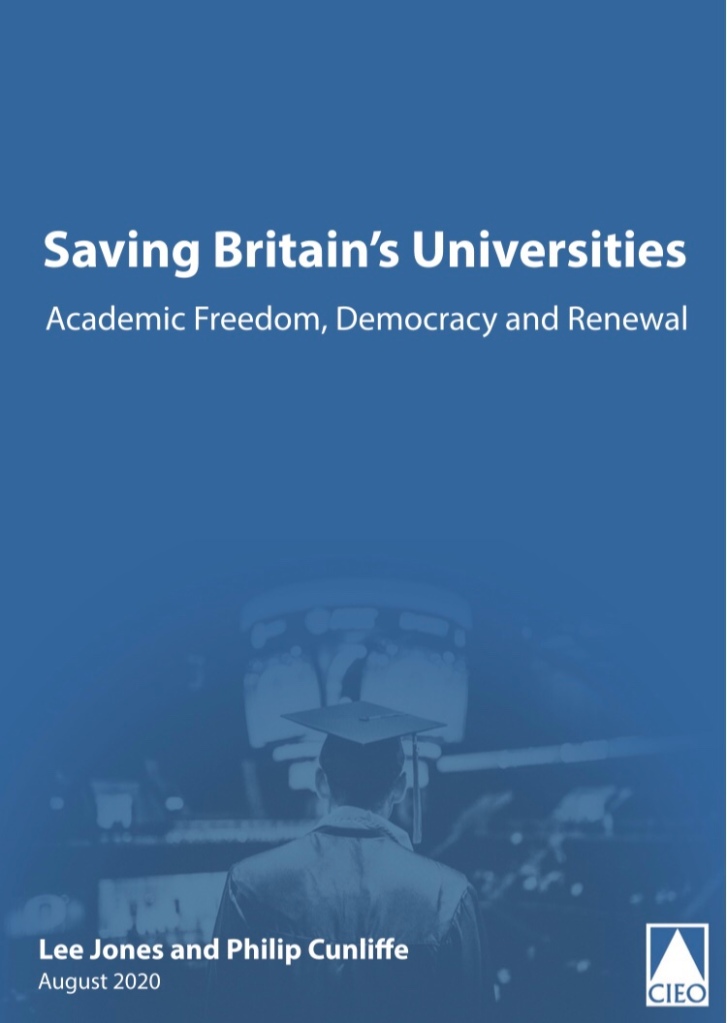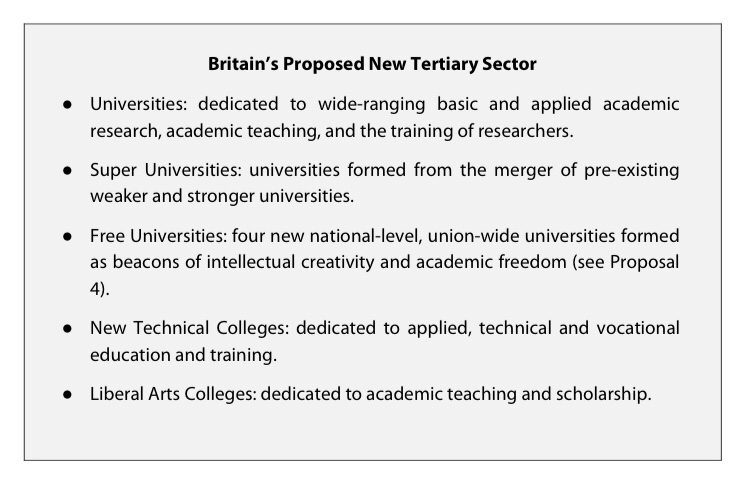Will no one think of the poor think tanks? There’s no better time to grab some headlines for higher education policy proposals than August and, as I have noted twice before, the run-up to A levels is a good time. Policy Exchange had another go at persuading everyone that freedom of speech is the big problem (hardly plausible now) and then CEIO published a report that said everything was the big problem. Sadly a real big problem; the outsourcing of university admissions to public examinations was already hitting, and that got lost. It’s worth going back to.

Everything is wrong. A giant compendium of problems, something contentious on every page, and each of those somethings is arguable. In fact, there’s too much to argue with – so I’m going to pick on one of the two core arguments; that too many people go to university and the linked notion that weaker universities should be converted to something else.
This argument has done the rounds on Twitter. Massification of higher education is the problem because it leads to managerialism, precarious jobs, pensions reforms, atriums – anything bad. So the brave contrarian has to round on too many people going to higher education. If that looks like a retrograde step, it’s because it is. Nudge nudge, it will be the technical or vocational things that go, leaving pure academic subjects behind. All will be well. The largest subject group recruited to through UCAS is Business & Management; no one likes the Business School.
So Jones & Cunliffe have come up with a scheme to slim down the sector – weaker and lower quality universities will be defrocked. A splendid planning exercise will happen, with DfE consulting communities, determining which of the current universities will become ‘New Technical Colleges’ (NTCs). The UK has never had a HE planning exercise on such a scale (something about independent autonomous universities must have got in the way) – the only analogies are the merger & closure of teacher training colleges in the 70s and the UGC cuts in the 80s. Trust the DfE though (a harder sell at the end of August).
Jones & Cunliffe aren’t completely clear which are the weaker universities (I guess you just know it) but they do offer the standard argument. They’re weaker because of the students who go there: WP students come in and when they go to work they don’t earn as much money as the average. Well, yes. If the mobile middle classes are less represented at some universities, then it’s not hard to see why the outcomes might be different.
Of course, this newly tiered sector may have some issues. The staff in these NTCs might not be pleased with their new status…
These changes will be highly disruptive for many university employees and it is critical that they be supported throughout and beyond the process.
Jones & Cunlife 2020 p31
The students at these NTCs might not be pleased either, but rest assured this is not elitism. The good news is that there will be ‘super universities’ (but not subject to the problems of the existing ones) and ‘free universities’ – extra super universities with one per nation (yes Northern Ireland gets the same investment as England).

So; the good news is that if you agreed with the benefits of the scheme and thought that the scheme could deliver those benefits, there’s no chance that a UK government could deliver the scheme. A planning body so strong that it would be nationalising the universities, fixing them in a hierarchy and then letting them go about their fully funded business with no further intervention at all. With the freedom to teach or research whatever they wanted. With elected vice-chancellors.
It’s clear that the notion we have too much higher education is not going away. Ministers were warming to this before they realised that universities were the only people who could mitigate their fiasco with level 3 assessments. It will be back, but hopefully without too much reference to this scheme.
Side note; academics are able to write about higher education, even though it’s not their field of study. This is not transferable: education specialists are unlikely to find think tanks to publish their views on international studies.